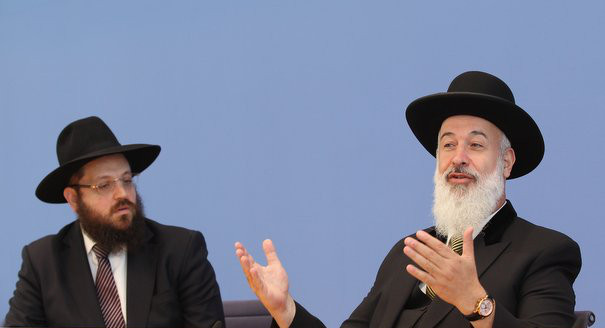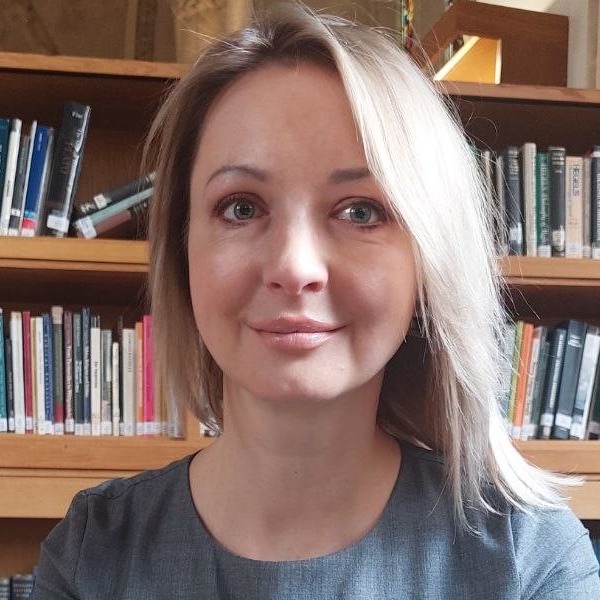Europe’s policy of subservience to the Trump administration has failed. For Washington to take the EU seriously, its leaders now need to combine engagement with robust pushback.
Stefan Lehne
{
"authors": [
"Judy Dempsey"
],
"type": "legacyinthemedia",
"centerAffiliationAll": "",
"centers": [
"Carnegie Endowment for International Peace",
"Carnegie Europe"
],
"collections": [],
"englishNewsletterAll": "",
"nonEnglishNewsletterAll": "",
"primaryCenter": "Carnegie Europe",
"programAffiliation": "",
"programs": [],
"projects": [],
"regions": [
"Europe"
],
"topics": []
}
Source: Getty
A court in Cologne decided that circumcision amounted to bodily injury. German Jewish leaders regard this as an assault on the essence of their religious identity.
Source: New York Times
IMGXYZ13488IMGZYXThe Jewish Hospital, in the bustling district of Wedding that also is home to a large Turkish community, has for years been providing a special service to Jews and Muslims.
“About 140 boys were circumcised last year,” said Gerhard Nerlich, the hospital’s spokesman. Circumcision was never an issue, he said, until June. That was when a court in Cologne, confronted with a case in which a small boy suffered complications following the procedure, decided that circumcision amounted to bodily injury.
“The fundamental right of the child to bodily integrity outweighed the fundamental rights of the parents,” the court ruled.
Fearing prosecution, doctors across Germany stopped performing circumcisions even though the Cologne ruling was not binding for the rest of the country. “We have done none since,” Mr. Nerlich said. The Cologne decision also created deep anxiety among Germany’s Jewish and Muslim communities about their place in society.Turkish community leaders say the ruling is an attack on their culture and religion. German Jewish leaders regard it as an assault on the essence of their religious identity. They said they felt as if they were living in an alien Germany.
“It’s as if the German authorities are telling us that our traditions are wrong,” said Ayse Demir, deputy director of the Turkish community in Germany who was born and raised in Germany.
Stephan J. Kramer, secretary general of the Central Council of Jews in Germany, was much more critical. “Germans are now lecturing the Jews about how we should treat our children, about the dangers of circumcision, about how the baby feels pain,” he said. “It’s as if they think we are barbarians, that we are indifferent to how the child feels,” Mr. Kramer said.
Under Jewish law, males must be circumcised on the eighth day after birth, either in a hospital or by a mohel, a Jew or rabbi who is trained as a circumciser. Muslim boys are circumcised later and generally in hospitals.
“Making a decision about circumcision is very difficult for the family,” said Ms. Demir, a secular Muslim who has a teenage son. “But I really think the state should not interfere.”
The German justice minister, Sabine Leutheusser-Schnarrenberger, is now drafting a law to keep circumcision legal. This is no easy task. At issue is how a Western secular society, with its emphasis on the protection of the individual, can reconcile that responsibility with religious rituals.
“It’s a very, very sensitive issue,” said a Justice Ministry official who spoke anonymously because the topic was so controversial. Ms. Leutheusser-Schnarrenberger, the official added, has to find a balance between three constitutional principles: freedom of religion; the rights of parents; and a person’s right to his physical integrity.
Other European countries are questioning circumcision as organizations for the protection of children insist that it is the state’s duty to shield children from physical injury.
Norway recently proposed that Jews and Muslims replace circumcision with a symbolic ritual. Some lawmakers also called for a minimum age of 18 so that parents could not decide. In Sweden, all circumcisions have to be carried out within the first two months of a child’s life with an anesthetic and performed by a registered physician. In the Netherlands, the Royal Dutch Medical Association has urged religious leaders to consider alternative rites that are not irreversible and are not painful for the child.
Jewish leaders are perplexed. They wonder whether these trends signal some kind of anti-Semitism that is concealed by medical and legalistic arguments.
With the history of the Holocaust behind it, the thinking goes, Germany owes it to the 200,000 or so Jews who live there that they be allowed to practice their religion unhindered. At the same time, Germany must remain a welcoming country for its four million Muslims.
Chancellor Angela Merkel has stepped into the debate. Rudolf Teuwel, a special adviser who serves as a liaison with churches and religious communities, recently wrote to the Rabbinical Center of Europe, which advises rabbis. Germany has a “special obligation” to cultivate Jewish culture and Judaism, he stated. “The chancellor is grateful that the Jews have once again found a homeland in Germany.”
Charlotte Knobloch, a leading member of the Jewish community who chose to remain in Germany after 1945, is no longer sure. “For six decades I have had to justify myself because I stayed in Germany, as a remnant of a destroyed world, as a sheep among wolves,” Ms. Knobloch wrote in Süddeutsche Zeitung, a leading daily newspaper.
“I always willingly carried this burden. I was firmly convinced that this country and these people deserved it. Now, for the first time, my basic convictions are starting to shake. For the first time, I feel resignation. I seriously ask if the country still wants us.”
Carnegie does not take institutional positions on public policy issues; the views represented herein are those of the author(s) and do not necessarily reflect the views of Carnegie, its staff, or its trustees.
Europe’s policy of subservience to the Trump administration has failed. For Washington to take the EU seriously, its leaders now need to combine engagement with robust pushback.

Stefan Lehne
Leaning into a multispeed Europe that includes the UK is the way Europeans don’t get relegated to suffering what they must, while the mighty United States and China do what they want.

Rym Momtaz
A prophetic Romanian novel about a town at the mouth of the Danube carries a warning: Europe decays when it stops looking outward. In a world of increasing insularity, the EU should heed its warning.

Thomas de Waal
Local political and social dynamics will shape the implementation of any peace settlement following Russia’s war against Ukraine—dynamics that adversaries may seek to exploit.

Daryna Dvornichenko, Holger Nehring
The EU lacks leadership and strategic planning in the South Caucasus, while the United States is leading the charge. To secure its geopolitical interests, Brussels must invest in new connectivity for the region.

Zaur Shiriyev